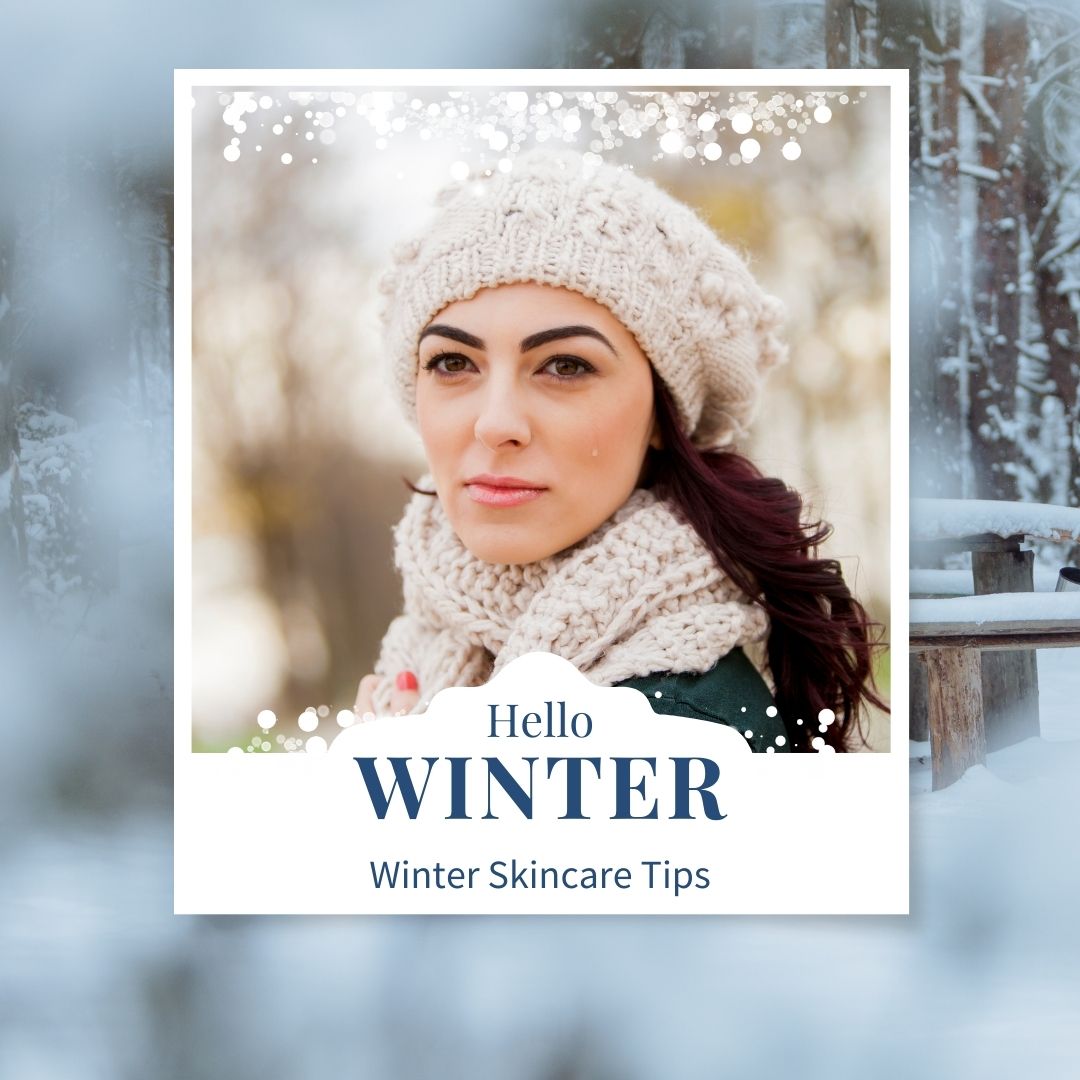Nurturing Your Skin in the Chilly Months
Our skin often faces new challenges as the cold season sets in and the temperatures drop here in the Raleigh, NC, area. Biting winds, low humidity, and indoor heating can lead to dryness, irritation, and a dull complexion. However, with the right approach, you can keep your skin healthy, hydrated, and glowing all winter.
Today, we will explore some essential winter skincare tips to help you combat the harsh effects of winter weather. From adjusting your skincare routine to choosing the right products, we’ve got you covered. Let’s dive in and discover how to maintain beautiful, supple skin even when the snow is falling outside.
Gentle Cleansers Were Made for Winter
Preserving Natural Oils
During winter, your skin’s natural oils are your best friend. They act as a protective barrier, keeping moisture in and environmental irritants out. Harsh cleansers with sulfates or strong detergents can strip away these oils, leaving your skin dry and prone to irritation. Opt for sulfate-free cleansers that are kinder to your skin’s natural balance.
Cleansing Tips for Winter
Warm, Not Hot Water: Use lukewarm water when cleansing your face. Hot water can be tempting during chilly months, but it can exacerbate dryness by stripping away your skin’s natural oils. Lukewarm water is gentle and won’t shock your skin.
Avoid Over-Cleansing: Unless you’ve been sweating heavily, you usually don’t need to cleanse your face more than twice a day. Over-cleansing can disrupt your skin’s natural balance. Stick to a morning and evening cleansing schedule.

Sunscreen (Yes, Even in Winter)
It’s a common misconception that sunscreen is only necessary during the summer months. However, protecting your skin from the sun’s detrimental UV rays is a year-round commitment, especially in winter. Here’s why:
UV Rays Don't Take a Winter Break
While the intensity of UVB rays (the ones responsible for sunburn) may decrease in winter, UVA rays (associated with premature aging and skin damage) remain constant throughout the year. Even on cloudy days, these rays can penetrate clouds and windows, reaching your skin.
Skin's Vulnerability in Winter
Cold weather can already compromise your skin’s barrier function, making it more susceptible to external stressors like UV radiation. Without protection, you’re at risk of dryness, redness, and accelerated aging.
Choosing the Right Winter Sunscreen
Selecting the appropriate sunscreen for winter is essential for maintaining skin health. Here’s what to consider:
- Broad-Spectrum Protection: Opt for a broad-spectrum sunscreen that shields against both UVA and UVB rays. Look for the term “broad-spectrum” on the label.
- SPF 30 or Higher: Choose a sunscreen with at least SPF 30. This offers sufficient protection for daily activities. For extended outdoor exposure, consider SPF 50.
- Non-Comedogenic: If you have acne-prone or sensitive skin, select a non-comedogenic sunscreen to prevent clogged pores and breakouts.
Why a Hydrating Serum Matters
Winter’s cold, dry air can strip your skin of its vital natural moisture, leaving it feeling tight, flaky, and uncomfortable. This is where a hydrating serum comes to the rescue. It’s a vital step in your skincare regimen because it provides concentrated moisture to combat dehydration and reinforces your skin’s natural barrier.
Key Ingredients to Look for in a Hydrating Serum
Hyaluronic Acid
This superstar ingredient can hold an astonishing amount of water—up to 1,000 times its weight. When applied topically, hyaluronic acid draws in moisture from the environment, ensuring intense hydration. It leaves your skin plump, smooth, and dewy.
Ceramides
Ceramides are lipids (fats) naturally found in your skin’s outermost layer. They act like mortar in a brick wall, helping to seal the gaps between skin cells. During winter, ceramides are crucial for fortifying your skin’s barrier, checking moisture loss, and protecting against environmental aggressors.
Niacinamide
Niacinamide (also known as vitamin B3) offers a range of benefits for winter skin. It enhances your skin’s moisture barrier, reduces inflammation, and helps fade dark spots and redness. It’s a multitasking ingredient that contributes to an overall healthier complexion.
Panthenol (Provitamin B5)
Panthenol is a humectant, which is a fancy word that means it attracts and holds water. It helps to support the skin’s moisture levels, soothes irritation, and promotes healing. In winter, it can alleviate dryness and provide relief for irritated or chapped skin.
A hydrating serum packed with ingredients like hyaluronic acid, ceramides, niacinamide, and panthenol is your winter skin’s best friend. It infuses your skin with the moisture it needs to stay supple, resilient, and comfortable, even in the most challenging cold and dry conditions. Make it a staple in your winter skincare routine to achieve a radiant complexion throughout the season.
Exfoliation is Important During Winter
Exfoliation plays a role in maintaining healthy skin, and during winter, it becomes even more essential. The colder months can lead to the buildup of dead skin cells on top of your skin, causing it to appear dull and potentially exacerbating dryness. A good exfoliation routine helps:
Remove Dead Skin Cells: Dead skin cells can accumulate, making your skin look flaky and rough. Exfoliation effectively sloughs off these dead cells, revealing the fresh, radiant skin beneath.
Promote Cell Turnover: It stimulates your skin to produce new cells, helping to maintain a youthful complexion and improving skin texture.
Choosing the Right Exfoliator: In winter, it’s crucial to select a gentle exfoliator to avoid irritating or damaging your skin. Instead of physical scrubs with coarse particles, consider chemical exfoliants like alpha hydroxy acids (AHAs) and beta hydroxy acids (BHAs).
Tips for Incorporating Exfoliation into Your Winter Routine:
- Frequency: Limit exfoliation to 1-2 times a week during winter to avoid over-exfoliating, which can lead to sensitivity.
- Patch Test: Before using a new exfoliating product, perform a patch test to ensure it doesn’t cause irritation or allergic reactions.
- Consider Professional Treatments: If you’re unsure about using chemical exfoliants at home, consult a dermatologist or skincare professional, like the ones here at Blue Ridge Dermatology, who can recommend in-office treatments like chemical peels.
Embrace Radiant Skin All Winter Long!
Winter doesn’t have to mean sacrificing your skin’s health and beauty. With these simple yet effective winter skincare tips, you can navigate the coldest months of the year with confidence. Remember, it’s all about hydration, protection, and a little extra TLC for your skin.
As you embark on your winter skincare journey, keep these tips in mind:
- Gentle Cleansing: Maintain your skin’s natural oils with a hydrating cleanser.
- Hydrating Serum: Replenish moisture with a hydrating serum containing ingredients like hyaluronic acid.
- Sunscreen: Don’t forget UV protection, even on cloudy days.
- Exfoliation: Opt for gentle exfoliants to remove dead skin cells.
By including these practices in your daily routine, you’ll be well-equipped to enjoy the winter season without worrying about dryness, redness, or discomfort. Cheers to a season filled with radiant, healthy skin!
Stay cozy and beautiful,
Blue Ridge Dermatology



